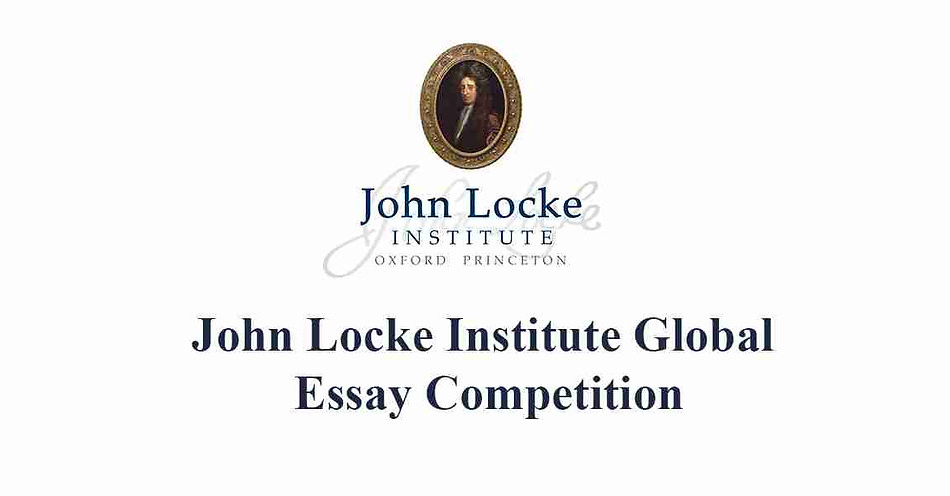The John Locke Institute Essay Competition is a highly competitive event. Standing out among high-achieving applicants takes more than just clear writing or a strong opinion—it takes intellectual depth, originality, and a sharp command of theory.
Drawing on our insights from guiding an extensive number of students through this competition, this guide breaks down what really makes a winning essay, drawing on insights from past prize-winners.
1. Relevance: Dissect the Question with Precision
One of the most common pitfalls is misinterpreting the question or engaging with it superficially. Top essays:
- Identify the key assumption(s) embedded in the question.
- Define ambiguous or contentious terms—with theoretical nuance.
- Scope the question clearly—what will you cover, and what won’t you?
🔍 Case Study:
2024 Economics Q1: “What is the optimal global population?”
✅ High-level students dissect the word “optimal” not just as “ideal,” but through various lenses:
2024 Economics Q1: “What is the optimal global population?”
✅ High-level students dissect the word “optimal” not just as “ideal,” but through various lenses:
- Economic: Output per capita, allocative efficiency.
- Environmental: Sustainability and ecological thresholds.
- Social: Equality, inclusivity, and demographic justice.
They also consider whether optimality is static or dynamic, and what metrics justify a normative claim.
2. Balance: Build a Thesis That Survives Attack
A strong essay presents a clear stance, yet doesn’t shy away from the best counterarguments. What separates a prize-winning essay is not just the conclusion—but how well it survives critique.
🎯 Use the “Point – Counterpoint – Reinforcement” method:
Example (2024 Economics Q3):
Do successful business people benefit others when making their money, when spending it, both, or neither?
Example (2024 Economics Q3):
Do successful business people benefit others when making their money, when spending it, both, or neither?
- Main Point: Successful business people benefit others when making money through job creation and productivity growth.
- Counter: But they may exploit workers or harm the environment.
- Reinforcement: These outcomes depend on the regulatory framework; under proper institutions, value creation dominates extraction.
This dialectical structure is common in top entries and shows intellectual maturity.
3. Persuasive Force: Depth, Originality, and Rhetorical Precision
💡 Originality doesn’t mean invention—it means application:
You don’t have to create a new theory. Instead, use existing tools in novel ways.
You don’t have to create a new theory. Instead, use existing tools in novel ways.
- Use game theory to model voter behaviour in a political essay.
- Apply Rawlsian justice to evaluate tax structures in an economics question.
- Bring in comparative history when discussing legal systems or morality.
🔍 Depth means not skating on the surface:
Don’t just name-drop “externalities”—explain whether they’re production or consumption-based, and if they’re marginal or systemic.
Don’t just name-drop “externalities”—explain whether they’re production or consumption-based, and if they’re marginal or systemic.
- 🚫Good: “A Pigouvian subsidy could be implemented to internalize the positive externality from education.”
- ✅Better: “A Pigouvian subsidy equal to the marginal social benefit minus marginal private benefit ensures allocative efficiency, but in practice, information asymmetries and government failure might reduce effectiveness.”
4. Structure: Write Like a Philosopher or Policy Analyst
🧠 Introduction:
- Hook the reader. Raise a provocative question or scenario.
- Define your terms.
- State your stance—and preview your reasoning.
📌 An Example:
“The optimal population is dynamic and contingent on multiple factors, including economic productivity, sustainability thresholds, and political feasibility. I argue that while population growth poses risks beyond a certain point, technological innovation and institutional design can extend this threshold—though not without trade-offs.”
“The optimal population is dynamic and contingent on multiple factors, including economic productivity, sustainability thresholds, and political feasibility. I argue that while population growth poses risks beyond a certain point, technological innovation and institutional design can extend this threshold—though not without trade-offs.”
🧱 Body Paragraphs:
- Each begins with a topic sentence that furthers your thesis.
- Follow with theory, examples, rebuttals.
- Avoid listing arguments—build them into a cumulative case.
🎯 Conclusion:
- Don’t summarise. Reframe your stance in light of the opposing arguments.
- Leave the reader with a provocative insight or question.
🧠 Example:
“If future breakthroughs in AI or gene editing fundamentally alter the productivity of each human, then today’s debates on ‘optimal population’ may soon seem as quaint as Malthus’s projections.”
“If future breakthroughs in AI or gene editing fundamentally alter the productivity of each human, then today’s debates on ‘optimal population’ may soon seem as quaint as Malthus’s projections.”
5. Evidence and Referencing: Use Academic Sources, Not Blog Posts
Winning essays often reference:
- Peer-reviewed journal articles (via JSTOR, Google Scholar)
- Seminal texts (e.g., Mill, Rawls, Friedman, Hayek, Keynes)
- Real-world policy case studies, such as Universal Basic Income trials in Finland or climate policy in the EU.
📌 Use footnotes for clarity. E.g.:
Boserup’s model of demographic-pressure-induced innovation provides a direct refutation of Malthusian pessimism.¹
¹E. Boserup, The Conditions of Agricultural Growth (London: George Allen & Unwin Ltd., 1965).
Boserup’s model of demographic-pressure-induced innovation provides a direct refutation of Malthusian pessimism.¹
¹E. Boserup, The Conditions of Agricultural Growth (London: George Allen & Unwin Ltd., 1965).
6. Technical Polish: Editing, Logic Checks, and Final Review
📝 Before submission:
- Perform a logic audit: Can your conclusion be drawn only if all premises are accepted?
- Do a word-level edit: Replace vague words with precise technical terms.
- Have at least two people read your draft—preferably someone experienced in the field.
⏳ Final 10 Days Checklist (from webinar):
- Finalise arguments, cut fluff, tighten analysis.
- Add citations where needed.
- Proofread for grammar and clarity.
- Test submission software early.
- Submit at least 24 hours before deadline.
Final Words
The John Locke Competition isn’t about sounding smart—it’s about thinking clearly and deeply. The best essays show that you understand complex ideas, but more importantly, can evaluate, challenge, and extend them.
To excel, think of yourself not as a student—but as a junior scholar, joining an ongoing intellectual conversation. If your work can change the mind of a smart, skeptical reader, you’re already doing what the best essayists in history have done.
📥 Want personalised guidance? Speak to us to learn more.
Find out more about our specialised coaching programme designed to help ambitious students craft winning essays for the John Locke Institute Essay Competition.
From topic selection and theory-building to editing and feedback from past prize-winners, we’ll guide you through every step.
Find out more about our specialised coaching programme designed to help ambitious students craft winning essays for the John Locke Institute Essay Competition.
From topic selection and theory-building to editing and feedback from past prize-winners, we’ll guide you through every step.






Leave A Comment